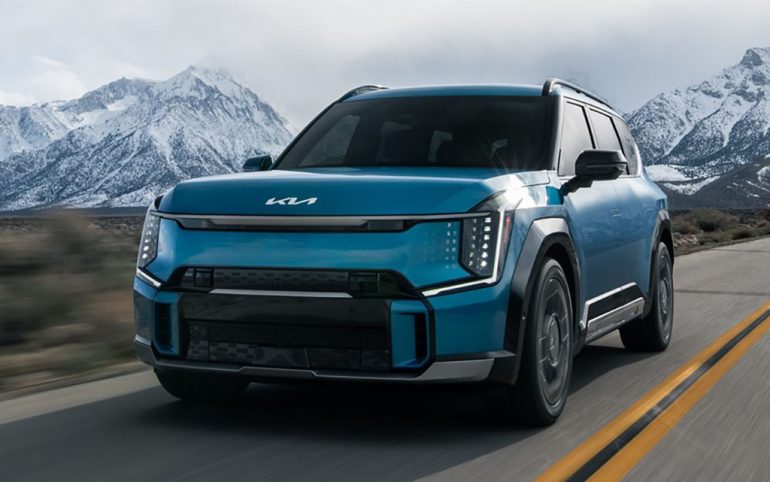
Kia has recently announced its plans to invest $200 million in its Georgia factory, signaling its entry into electric vehicle production. The South Korean automotive company intends to allocate these funds towards the production of an electric-powered SUV, specifically the large EV9 model. The factory, located in West Point, Georgia, will see an increase in employment with the hiring of an additional 200 workers to support the production of the EV9, expected to commence in early 2024.
The expansion of production at the Georgia plant reflects Kia’s commitment to meet the rising demand for electric vehicles. Currently, the facility produces approximately 340,000 vehicles annually, including popular models like the Telluride, Sorrento, Sportage SUVs, and K5 sedans. As of 2021, the plant employed around 2,700 individuals.
Kia’s parent company, Hyundai Motor Group, is also actively pursuing electric vehicle manufacturing. Hyundai is nearing completion of a $5.5 billion plant dedicated to the assembly of electric vehicles and batteries in Ellabell, Georgia, near Savannah. Additionally, Hyundai invested $300 million in its Montgomery, Alabama plant to initiate the production of electric vehicles, starting with the Genesis Electrified GV70 SUV. These investments have resulted in the hiring of additional workers at the Alabama facility as well.
Kia’s leaders are optimistic about the potential success of the EV9 model, which features three rows of seats. Many can think of the EV9 as being Telluride-sized featuring many of the enjoyed accommodations and features of the highly praised Telluride. Moreover, Kia anticipates that it will have a similar impact on sales as the highly successful Telluride, which first rolled off the assembly line in West Point in 2019. Last month, Kia began delivering EV9s to customers in South Korea, and the company’s President and CEO, Sean Yoon, expressed his confidence that the EV9 will be a standout in the EV market.
Despite these positive developments, Kia and Hyundai have voiced concerns about the fairness of federal electric vehicle tax credits. They argue that the current eligibility criteria, which only includes leased vehicles, puts them at a disadvantage. The Inflation Reduction Act mandates that tax incentives for electric vehicle purchases are contingent upon meeting domestic content standards, requiring the vehicle, battery, and key raw materials to be manufactured in the United States. To address this issue, Hyundai has announced plans to collaborate in the construction of a battery factory in Cartersville, Georgia.
Georgia, as a state, has been a significant beneficiary of the electric vehicle investment boom across the nation. Since 2020, more than 40 electric vehicle-related projects have been initiated in Georgia, with a combined investment commitment of $22.9 billion and the creation of 28,600 jobs. Governor Brian Kemp has expressed his support for these initiatives and believes they are a testament to the state’s favorable business environment. On the other hand, Democratic Senator Jon Ossoff credits President Joe Biden’s policies for driving the electric vehicle investment boom.
The state of Georgia will cover the costs of training workers for the Kia factory expansion. Production workers at the facility can expect a starting salary of $38,000 per year, with opportunities for pay raises and additional compensation for evening shifts. Kia could potentially qualify for state income tax credits of up to $1.75 million, calculated at $1,750 per job over a five-year period, as long as employees earn at least $31,300 annually. Moreover, the company may be eligible for other incentives, such as property tax breaks from West Point and Troup County.
Kia’s West Point plant has previously received over $450 million in incentives since its inauguration in 2010. Financial records from West Point indicate that in 2019, Kia, its affiliates, and suppliers were already benefiting from $2.8 million in property tax breaks solely from the city.

Mike Floyd is a finance executive by trade and a car enthusiast at heart. As a CFO with a keen eye for detail and strategy, Mike brings his analytical mindset to the automotive world, uncovering fresh insights and unique perspectives that go beyond the surface. His passion for cars—especially his favorite, the Porsche 911, fuels his contributions to Automotive Addicts, where he blends a love for performance and design with his professional precision. Whether he’s breaking down industry trends or spotlighting emerging innovations, Mike helps keep the site both sharp and forward-thinking.